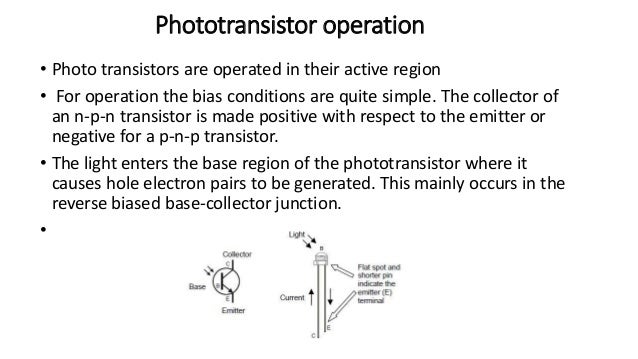
maybe with infrared LEDs and reflection? or what do you think?īasically yes, sensors are matched to specific wavelengths, so to get the maximum sensitivity you have to use the right wavelength.

(here, they used a "reversed biased" transistor. why is this and whats the difference? is mine better than this?) (here, the resistor is before phototransistor and analog pin is also before transistor.

+5V-Resistor 18kohm-+-PhotoTransistor-GND I found two different examples about how to use the phototransistor as a sensor, this one: (sorry, the labeling arrow should point to the little black box, not to the poti, of course.) Is this the right way to build the "circuit" up? i don't want to damage anything, so.: My phototransistors came in a light barrier set, its these ones: Infrarot Lichtschranken-Paare TEMIC K153P online kaufen | Ĭan i use them for sensing visible light, not infrared light, too? does it make any difference concerning the sensibility? I have a photoresistor here (which is quite easy to use, of course) and phototransistors, and i'm using a phototransistor now because the resistor reacts too slow i'll try out using the data for audio control then, let's see.

I want to put my hand above it and have higher (or lower) values if my hands covering it than if its more far away from it, so why not use a simple light sensor first. I want to build a very basic light sensor, as sort of a substitute for real distance sensing with ultrasonic


 0 kommentar(er)
0 kommentar(er)
